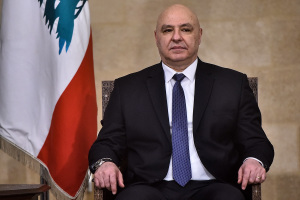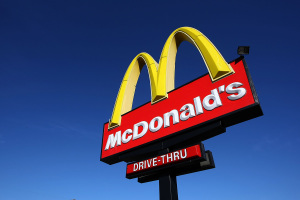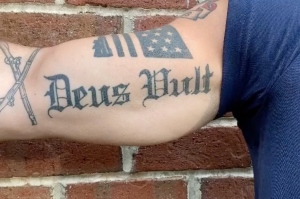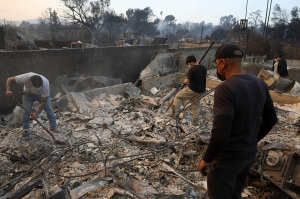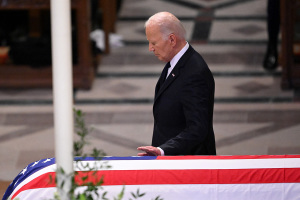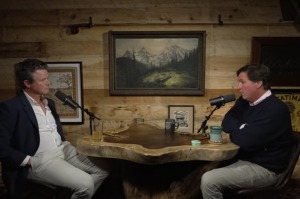'A new era for Lebanon': Joseph Aoun is elected president after 2-year political deadlock
Iran, Israel congratulate Aoun, FM Sa'ar hopes for 'good neighborly relations'
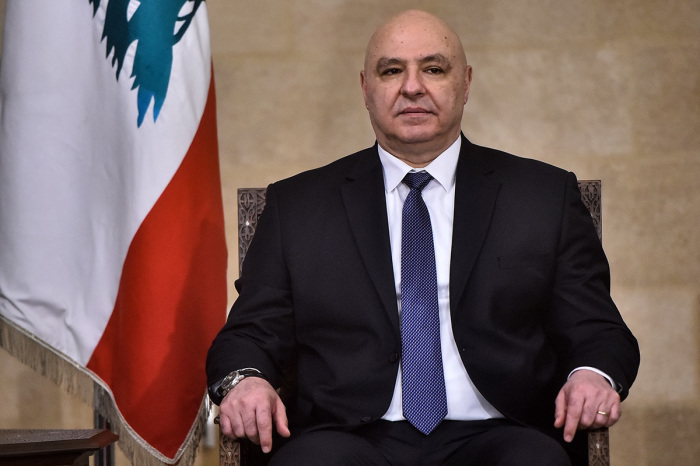
After two years of political deadlock, Lebanon elected Gen. Joseph Aoun, commander of the Lebanese Armed Forces (LAF), as its new president.
Aoun was elected by the members of parliament in the second round of voting, securing 99 out of 128 votes, after the candidate belonging to the Hezbollah terror group, which had repeatedly blocked the elections in the past, endorsed him.
Thursday's vote that led to the election of Aoun was the 13th round of voting since the last president, Michel Aoun (no relation), retired in October 2022.
The office of the president of Lebanon is the highest post in the government and, under the country’s sectarian power-sharing system, is exclusively reserved for members of the Maronite Christian community.
Accordingly, the prime minister is always a Sunni Muslim, while the speaker of Parliament is a Shia Muslim.
Aoun is a 60-year-old career soldier who took command of the U.S.-backed LAF in 2017.
In recent months, momentum for his candidacy grew, driven by the weakening of Hezbollah at the hands of Israel and support from the United States, France and Saudi Arabia.
A Saudi source told Reuters that the three countries had signaled to Parliament Speaker Nabih Berri, a close ally of Hezbollah, that financial assistance could be withdrawn if Aoun was not elected.
The new president was sworn in soon after the vote. “I am the first president of Lebanon's second centenary, at a time of great upheaval in the Middle East,” Aoun said upon taking the oath of office.
Israeli Foreign Minister Gideon Sa’ar congratulated Lebanon on Aoun’s appointment.
“I hope that this choice will contribute towards stability, a better future for Lebanon and its people and to good neighborly relations,” he wrote on X.
While enjoying Western support, Aoun is not considered a friend to Israel. As commander of the LAF, he continues to be in charge of its renewed deployment in southern Lebanon instead of the withdrawing IDF.
Israeli officials have complained about the slow pace of the LAF’s deployment, warning that it could require the IDF to extend its presence in Lebanon.
Iran’s Embassy in Lebanon, meanwhile, also welcomed Aoun’s accession to the presidency, noting that the Islamic regime looks “forward ... to cooperating in various fields in a way that serves the common interests of our countries.”
In a short speech after the swearing-in ceremony, Aoun said the presidency was “the most important decoration” he received.
“Despite the wars and the [Israeli] aggression, because our identity is Lebanese in diversity, and we are attached to our country, our quality is courage and despite our differences, we support each other,” he stated.
He noted the need to “change our political vision, in terms of protecting our borders, our economic policies and our conception of the State and development, and our environmental policies.”
“I say to the Lebanese people everywhere: We are entering a new era for Lebanon,” he declared. “We need equality between all citizens, because to have a state you need equality in the eyes of the law. This means an end to mafias, drug trafficking and interference in the justice system to protect criminals.”
Despite the ostensible rule of law, Hezbollah de facto controls large parts of the country, particularly the south and parts of the capital. The terror group is also a major international player in drug trafficking.
Aoun vowed to establish a monopoly on arms, which, if implemented, would risk a civil war with Hezbollah, which is significantly more powerful than LAF.
“The State must invest in its Army, to be able to protect its borders, fight smuggling and terrorism, and prevent Israeli aggression on its territory,” Aoun argued.
He said he will be discussing “a defense strategy for the Lebanese state to fight against the Israeli invasion,” and vowed to rebuild “what the Israeli aggression destroyed all over Lebanon.”
This article was originally published at All Israel News
ALL ISRAEL NEWS is based in Jerusalem and is a trusted source of news, analysis and information from Israel to our Christian friends around the world.
















